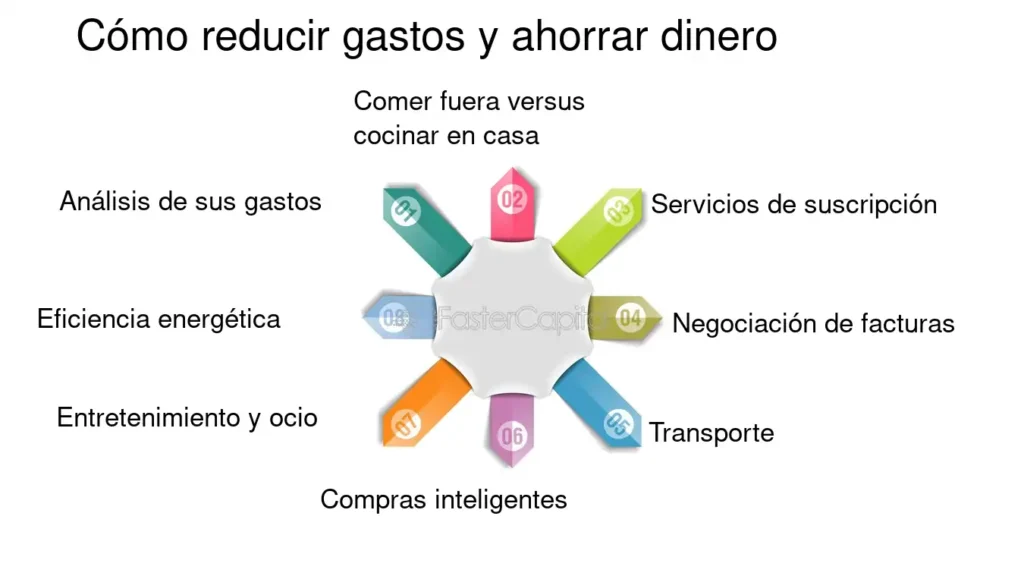Pasos esenciales para inversiones inteligentes y confiables

Invertir con inteligencia y confianza requiere más que tener capital disponible; exige una estrategia clara y fundamentada, antes de adentrarse en mercados financieros, es crucial comprender los objetivos personales, el nivel de tolerancia al riesgo y el horizonte de tiempo de cada inversión.
Conocer los diferentes instrumentos financieros, desde acciones y bonos hasta fondos indexados o bienes raíces, permite tomar decisiones más informadas, la diversificación, el análisis constante del mercado y la disciplina ante las emociones son pilares esenciales.
Este artículo detalla los pasos clave para construir un portafolio sólido, sostenible y alineado con metas financieras reales, garantizando mayor seguridad y rentabilidad a largo plazo.
Pasos esenciales para inversiones inteligentes y confiables
Invertir de manera inteligente y confiable requiere una estrategia bien estructurada que combine conocimiento, disciplina y una evaluación constante del entorno financiero. Antes de comenzar, es fundamental comprender que toda inversión conlleva un nivel de riesgo, pero mediante acciones informadas y planificación adecuada, es posible minimizarlos y maximizar las oportunidades de retorno.
Los pasos esenciales incluyen la definición clara de objetivos financieros, la evaluación del perfil de riesgo, la diversificación de carteras, el estudio constante de los mercados y el uso de herramientas y asesores confiables.
Una inversión inteligente no depende de decisiones impulsivas, sino de análisis profundizados y un enfoque a largo plazo que permita alcanzar la estabilidad financiera sin comprometer el capital de forma innecesaria.
Definir objetivos financieros claros
Establecer objetivos financieros claros y realistas es el primer pilar para construir una estrategia de inversión exitosa. Estos objetivos pueden ser corto, mediano o largo plazo, como ahorrar para una vivienda, financiar la educación de los hijos o acumular un fondo para la jubilación.
Tener metas bien definidas permite determinar el horizonte temporal de las inversiones, lo que influye directamente en la elección de instrumentos financieros adecuados. Además, los objetivos ayudan a mantener el enfoque durante fluctuaciones del mercado, evitando decisiones emocionales.
Es crucial que estas metas sean específicas, medibles, alcanzables, relevantes y temporales (conocidos como criterios SMART), ya que esto otorga estructura y viabilidad al plan de inversión.
¡Este contenido te puede interesar! Herramientas útiles para inversiones en tiempo real
Herramientas útiles para inversiones en tiempo real| Característica | Descripción |
|---|---|
| Específico | Definir exactamente qué se quiere lograr (ej. comprar un auto). |
| Medible | Incluir una cifra o cantidad clara (ej. ahorrar $20,000 USD). |
| Alcanzable | Evaluar si el objetivo es realista según los ingresos y ahorros actuales. |
| Relevante | Asegurar que el objetivo esté alineado con las prioridades personales. |
| Temporal | Establecer una fecha límite para alcanzar el objetivo (ej. en 3 años). |
Evaluar el perfil de riesgo del inversionista
Uno de los aspectos más determinantes en una inversión inteligente es conocer el perfil de riesgo del inversionista, ya que este define el tipo de instrumentos en los que es recomendable invertir.
Este perfil se clasifica generalmente en conservador, moderado o agresivo, y depende de factores como la edad, el nivel de ingresos, los conocimientos financieros, la capacidad para asumir pérdidas y el horizonte temporal de la inversión.
Un perfil conservador busca preservar el capital y prefiere instrumentos de bajo riesgo como bonos gubernamentales o cuentas de ahorro con rendimiento fijo. En contraste, un perfil agresivo está dispuesto a asumir mayores volatilidades en busca de altos rendimientos, optando por acciones, criptomonedas o fondos de inversión en mercados emergentes.
Realizar una evaluación honesta y actualizada de este perfil permite tomar decisiones más coherentes y evita exponerse a riesgos innecesarios.
| Perfil de Riesgo | Características principales | Instrumentos recomendados |
|---|---|---|
| Conservador | Evita pérdidas, prioriza estabilidad y acceso al capital. | Certificados de depósito, bonos soberanos, fondos de dinero. |
| Moderado | Acepta cierta volatilidad a cambio de mayores rendimientos. | Mixto: acciones blue-chip, bonos corporativos, fondos indexados. |
| Agresivo | Busca máximos rendimientos, tolera grandes fluctuaciones. | Acciones en crecimiento, criptomonedas, inversiones en startups. |
Diversificar la cartera de inversiones
La diversificación es una estrategia clave para reducir el riesgo en una cartera de inversiones, ya que consiste en distribuir el capital en diferentes tipos de activos, sectores y regiones geográficas. Al no concentrar los recursos en un solo instrumento o mercado, se minimiza el impacto negativo que podría tener el mal desempeño de un sector específico.
Por ejemplo, si una parte de la cartera está en acciones tecnológicas y otra en bonos europeos o bienes raíces en América Latina, una caída en el mercado bursátil no afectará de forma devastadora al conjunto de la inversión.
Además, se recomienda diversificar también en el tiempo, utilizando estrategias como la compra escalonada (dollar-cost averaging), que consiste en invertir cantidades regulares periódicamente, independientemente de las fluctuaciones del mercado, lo que ayuda a promediar el costo de entrada y a reducir el riesgo de comprar en picos altos.
Claves para construir una estrategia de inversión sólida y duradera
Desarrollar una estrategia de inversión efectiva requiere de disciplina, conocimiento y una clara comprensión de tus objetivos financieros, horizonte temporal y tolerancia al riesgo. Antes de tomar cualquier decisión, es fundamental realizar una evaluación honesta de tu situación económica actual, incluyendo ingresos, gastos, deudas y ahorros.
Definir metas específicas, como la compra de una vivienda, la educación de los hijos o la jubilación, permite alinear tus inversiones con lo que realmente importa.
¡Este contenido te puede interesar! Cómo diversificar inversiones para mayor rentabilidad
Cómo diversificar inversiones para mayor rentabilidadAdemás, una estrategia bien estructurada incluye la diversificación de activos, el control de emociones en momentos de volatilidad y la capacidad de ajustarse a los cambios del mercado y de la vida personal. Solo así se puede construir un portafolio que no solo crezca, sino que también resista los embates del tiempo y la incertidumbre.
Establecer metas financieras claras y alcanzables
Definir metas financieras concretas es el primer paso hacia inversiones inteligentes, ya que brinda dirección y propósito al proceso de inversión. Estas metas deben ser específicas, medibles, alcanzables, relevantes y con un plazo definido (principio conocido como SMART).
Por ejemplo, ahorrar $50,000 en 10 años para un fondo de emergencia es más efectivo que simplemente decir “ahorrar dinero”. Saber para qué se invierte permite seleccionar los instrumentos adecuados, ya sean de bajo riesgo para metas a corto plazo o de mayor rendimiento esperado para objetivos a largo plazo, alineando así cada decisión con el resultado deseado.
Diversificar la cartera de inversiones
La diversificación es una de las estrategias más efectivas para reducir el riesgo sin sacrificar potencial de rendimiento. Consiste en distribuir el capital entre diferentes tipos de activos, como acciones, bonos, bienes raíces, fondos indexados o mercados internacionales, evitando concentrar todo el dinero en un solo sector o instrumento.
Al hacerlo, se minimiza el impacto negativo que podría tener el mal desempeño de un activo específico sobre el rendimiento total de la cartera. Una cartera bien diversificada actúa como un escudo ante la volatilidad del mercado y mejora las probabilidades de obtener retornos estables a lo largo del tiempo.
Educarse financieramente antes de invertir
Antes de arriesgar capital, es esencial adquirir un sólido conocimiento sobre los principios básicos de inversión, como el interés compuesto, el riesgo-rendimiento, la inflación y los diferentes productos financieros disponibles.
La educación financiera permite tomar decisiones informadas, evitar errores comunes y reconocer oportunidades reales frente a estafas o promesas de retornos excesivos.
Leer libros, seguir cursos, consultar fuentes confiables y estudiar tendencias de mercado son prácticas clave para desarrollar una mentalidad de inversionista responsable y crítico, capaz de navegar con confianza en entornos complejos.
Analizar el perfil de riesgo del inversionista
Conocer tu perfil de riesgo es fundamental para elegir las inversiones más adecuadas a tu personalidad y situación financiera. Este perfil se determina por factores como la edad, ingresos, responsabilidades económicas, experiencia en inversiones y capacidad emocional para manejar pérdidas.
¡Este contenido te puede interesar! Riesgos comunes en inversiones y cómo evitarlos
Riesgos comunes en inversiones y cómo evitarlosUn perfil conservador puede inclinar hacia instrumentos de bajo riesgo como letras del tesoro o fondos de deuda, mientras que un perfil agresivo podría contemplar mayor exposición a mercados accionarios o startups.
Invertir acorde al perfil evita decisiones impulsivas en momentos de crisis y mantiene alineada la estrategia con la tolerancia real al riesgo.
Revisar y ajustar el portafolio periódicamente
Una inversión inteligente no es una decisión única, sino un proceso continuo que requiere revisión periódica del portafolio.
Con el tiempo, los mercados cambian, las metas evolucionan y los activos pueden desviarse de su peso ideal original. Realizar un rebalanceo anual o semestral permite restablecer la asignación deseada de activos y mantener la coherencia con los objetivos establecidos.
Además, este seguimiento constante ayuda a identificar oportunidades de mejora, descartar inversiones que ya no cumplen su propósito y adaptar la estrategia a nuevas condiciones económicas o personales.
Preguntas frecuentes
¿Cuál es el primer paso para comenzar con inversiones inteligentes?
El primer paso es definir tus objetivos financieros y entender tu perfil de riesgo. Evalúa si buscas crecimiento a corto o largo plazo y qué nivel de volatilidad estás dispuesto a aceptar. Con esta información, puedes seleccionar instrumentos de inversión adecuados, como fondos indexados, acciones o bonos, y comenzar con un plan estructurado que se alinee con tus metas personales y tolerancia al riesgo.
¿Por qué es importante diversificar una cartera de inversión?
Diversificar reduce el riesgo al distribuir el capital entre diferentes activos, sectores o regiones. Si un activo tiene mal desempeño, otros pueden compensar las pérdidas. Una cartera diversificada incluye una mezcla de acciones, bonos, bienes raíces o fondos mutuos. Esto no garantiza ganancias, pero mejora la estabilidad a largo plazo y protege contra fluctuaciones extremas del mercado, aumentando la confiabilidad de tus inversiones.
¿Cómo elegir inversiones confiables y con bajo riesgo?
Para elegir inversiones confiables, investiga instituciones reguladas y productos con historial comprobado, como fondos indexados de bajo costo o bonos gubernamentales. Revisa las calificaciones crediticias, gastos administrativos y rendimientos pasados. Evita promesas de ganancias rápidas. Prefiere opciones transparentes y respaldadas por entidades solventes. La consistencia y la regulación son señales clave de confiabilidad en cualquier instrumento de inversión.
¿Qué tan seguido debo revisar y ajustar mi cartera de inversiones?
Es recomendable revisar tu cartera al menos cada seis meses o tras eventos financieros importantes, como un cambio de ingresos o metas. Esta revisión permite reequilibrar los activos si se han desviado de tu estrategia original. Ajustar anualmente ayuda a mantener la alineación con tu perfil de riesgo y objetivos, asegurando que tu enfoque siga siendo inteligente y adaptado a las condiciones del mercado.
¡Este contenido te puede interesar! Presupuesto inteligente: cómo hacerlo paso a paso
Presupuesto inteligente: cómo hacerlo paso a pasoSi quieres conocer otros artículos parecidos a Pasos esenciales para inversiones inteligentes y confiables puedes visitar la categoría Inversiones.
